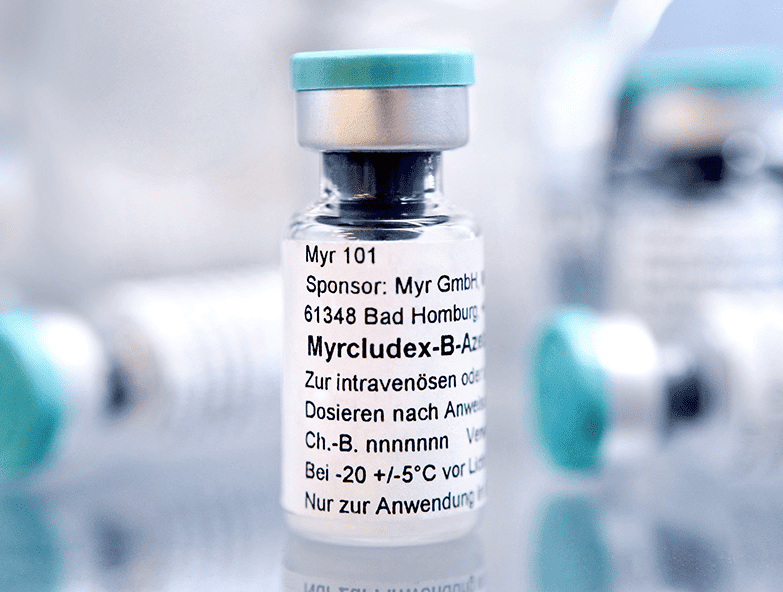
German biotech Myr Pharma has reported positive phase 2b trial data with bulevirtide in patients with chronic hepatitis B and D, driving the virus down to undetectable levels in some patients.
The trial tested the first-in-class entry inhibitor – also known as Myrcludex B – in combination with pegylated interferon alfa therapy and showed that patients taking the regimen saw virus levels decline whilst on therapy and importantly also after it was discontinued.
A new generation of directly-acting antivirals for hepatitis C virus (HCV) have made chronic infections effectively curable in almost all cases, but patients with chronic hepatitis B virus (HBV) infection often need long-term or even lifelong treatment.
It is estimated that almost 2 billion people have been infected with HBV worldwide, and while in many cases the infection is acute and the body’s immune system effects its own cure and eradicates the virus. Of these, around 380 million of cases HBV are chronic, which means the virus hides away in tissues and organs.
Chronic HBV – which is most often seen in people exposed to the virus in infancy – can lead to life-threatening problems, such as liver cirrhosis and liver cancer. Meanwhile, hepatitis D virus (HDV) is less common, only occurring in people who are infected with HBV as it is an incomplete virus that requires HBV’s machinery to help it replicate.
Like HBV, HDV can be acute or chronic, and the risks of complications for people with HBV/HDV co-infection is much greater. It affects 15m-20m people worldwide, and has no approved therapies.
In Myr’s trial, more than 50% of patients on bulevirtide and peginterferon-alfa had undetectable HDV RNA after 48 weeks of treatment, which was sustained off-treatment in the majority of individuals.
There was also ”undetectable levels of hepatitis B surface antigen (HBsAg) in some participants receiving the combination treatment,” says the biotech, and that “suggests a future role for bulevirtide in regimens targeted towards HBV cure.”
“The results of this trial suggest that bulevirtide is a promising treatment for chronic HDV infection, and that the combination of bulevirtide and [peginterferon-alfa] has the potential to cure HBV/HDV coinfection in some patients,’ said Prof. Heiner Wedemeyer of Essen University Hospital in Germany, who presented the data at the EASL congress over the weekend.
Bulevirtide blocks a surface protein on liver cells called NTCP that is used by HBV and HDV to gain entry, blocking infection. It has been given a breakthrough designation by the FDA, Priority Medicines (PRIME) status by the EMA and has been awarded a Promising Innovative Medicine (PIM) designation from the MHRA in the UK.




